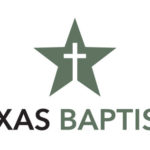WACO—The United States does not have a health care problem as much as it has an insurance problem and an income problem, two economists at Baylor University have asserted. And they insist those problems can be solved with minimal government involvement.
“When it comes to health care, the proper role of the government is as referee. Government shouldn’t be in the game, acting like a quarterback calling plays. It should be getting the playing field ready for fair competition,” said Earl Grinols, distinguished professor of economics in Baylor’s Hankamer School of Business.
Grinols and his colleague, James Henderson, academic director for the school’s MBA program in health care administration, have presented their proposal for universal health care in Health Care for Us All: Getting More for Our Investment.
For most people, lack of insurance is a temporary situation often associated with a job loss, and the uninsured population in the United States constantly is changing, they have asserted. Half get insurance within six months, Grinols said.
Government can level the playing field and make insurance more accessible through “a few little legal changes,” he insisted.
Specifically, Grinols and Henderson call for legislation requiring insurance companies to guarantee renewability, guarantee issue of a policy “to anyone who comes in the door” and create “homogeneous risk pools” based solely on age, sex and geographic location.
These homogenous risk pools would lower the price of health insurance for the most-uninsured demographic in the population—the young and healthy, the Baylor economists asserted.
To eliminate “cherry picking and cream skimming”—practices where insurance companies seek to create pools composed only of clients who are good risks for them, Grinols has suggested creating a national pool to set the average.
Grinols and Henderson want to create incentives to induce people to buy their own health insurance. For instance, Grinols describes a system where a general value-added tax is imposed on goods, but consumers who show proof of insurance receive an immediate discount.
Sign up for our weekly edition and get all our headlines in your inbox on Thursdays
A revenue tax also would be imposed on providers of health care and insurance under the Baylor economists’ plan, with the proceeds used to provide temporary income subsidies targeted to people who otherwise cannot afford to buy their own insurance.
Grinols and Henderson believe a system can be developed that enables truly needy people to buy insurance without creating an ongoing system of entitlement or threatening the insurance coverage or health care of Americans who already have coverage.
The economists believe private-market competition will keep prices down—provided consumers have good information.
“The only known reliable self-regulating mechanism requires competition,” Grinols said.
He wants to see health care providers required to post their prices and charge all consumers who buy the same service on the same terms that same price. While not everyone will shop around for medical services, enough people will do it to bring about lower prices, he said.
“In the marketplace, it doesn’t require everyone to do comparison shopping. The market only needs a few consumers who are comparison shopping to self-regulate,” Grinols said.














We seek to connect God’s story and God’s people around the world. To learn more about God’s story, click here.
Send comments and feedback to Eric Black, our editor. For comments to be published, please specify “letter to the editor.” Maximum length for publication is 300 words.